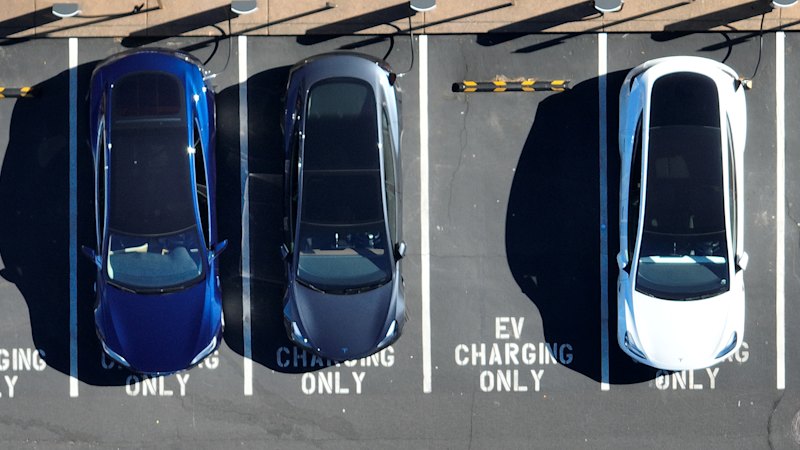
Australians are facing significant challenges regarding the adoption of electric vehicles (EVs). Despite the Albanese government’s generous tax incentives aimed at promoting EV sales, many potential buyers remain hesitant. A personal account illustrates the dilemma: one prospective car buyer opted against switching to an EV due to concerns about charging infrastructure, resale values, and the convenience of public charging stations.
A recent study indicates that just 7.7 percent of new car sales in Australia this year have been for EVs. This figure remains low despite an expanding selection of electric models and competitive pricing with traditional internal combustion engine vehicles. In contrast, hybrid vehicles are gaining traction, accounting for 16 percent of sales, with plug-in hybrids making up an additional 4 percent.
The government’s shift in policy regarding hybrid vehicles has further complicated the landscape. As of April 2023, hybrids are no longer exempt from the fringe benefits tax (FBT), which has diminished their appeal. The Climate Change and Energy Minister Chris Bowen asserts that hybrids do not meet the government’s stringent emissions reduction goals. This stance contrasts sharply with consumer interest, as many Australians are more inclined to purchase hybrids than EVs.
The broader trend is not unique to Australia. Global enthusiasm for EVs has often fallen short of expectations set by governments and manufacturers. In Europe, countries like Norway have successfully limited the sale of internal combustion vehicles, while Australia struggles to reach its targets. The timeline for widespread EV adoption remains uncertain, raising questions about the effectiveness of current policies.
As the buyer’s lease expiration approaches, there is hope that charging infrastructure will improve. However, the current financial outlook suggests that the government may reconsider tax incentives by then. Initial estimates projected that only about 5,000 people would take advantage of the novated lease tax incentives for EVs following their introduction in 2022. In reality, the number has exceeded expectations, leading to a revenue shortfall of approximately $2.6 billion over the first four years.
While Bowen touts this growth as a policy success, critics argue that a disproportionate amount of tax benefits are going to higher-income earners who would likely purchase EVs regardless. This raises concerns about the efficient use of taxpayer funds. The Productivity Commission recently recommended ending the FBT exemption, highlighting the high cost of carbon abatement, which ranges from $1,000 to $20,000 per tonne.
In August, Jim Chalmers convened an economic roundtable where the issue of a road-user charge for EV owners was discussed. This charge aims to offset the loss of federal fuel excise revenue as more motorists transition to electric and hybrid vehicles. The current fuel excise generates around $16 billion annually, contributing to road maintenance funding. However, the implementation of such a charge has faced resistance.
Bowen has expressed concern that a road-user charge could undermine emissions reduction targets, particularly given skepticism about meeting the ambitious goals set for 2035. The Climate Change Authority suggests that achieving a 62 to 70 percent reduction in emissions is feasible if at least half of new car sales are EVs in the coming decade. Yet state governments, including those in New South Wales and Victoria, argue that a reasonable annual charge of approximately $300 would not deter buyers who have already invested significantly in EVs.
Some states have begun exploring their own road-user charges in the absence of a national framework. However, legal challenges have emerged, as demonstrated by the High Court’s ruling that declared Victoria’s charge unconstitutional. The Commonwealth supported the challenge, highlighting the complexities of implementing a cohesive policy.
As discussions about the future of EVs progress, the government faces pressing questions about infrastructure, taxation, and consumer confidence. The pathway toward widespread adoption remains fraught with challenges, leaving many apprehensive about the transition to electric vehicles.







